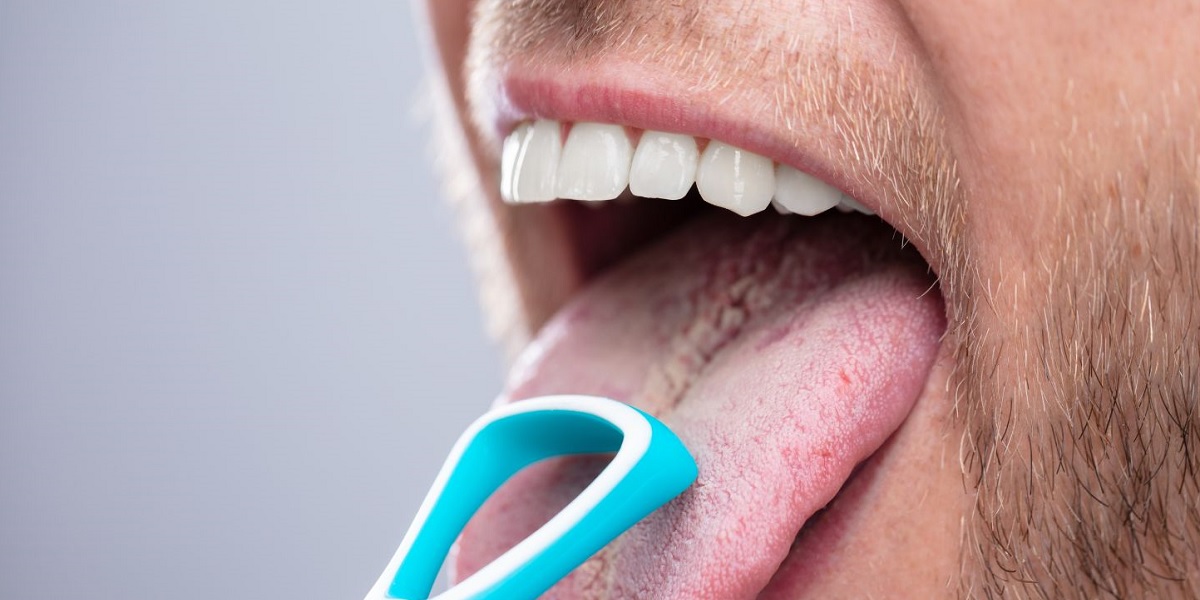Last Updated on: 21st October 2024, 01:15 pm
Halitosis And How To Treat It: Causes And Symptoms
Halitosis, commonly known as bad breath, is an uncomfortable condition that can affect our social interactions and self-esteem. In this article, we will explore in depth what halitosis is, the types, causes, halitosis and how to treat it effectively. You will discover practical tips and natural remedies to maintain fresh, healthy breath, and come to understand how this condition can significantly impact your daily life.
Halitosis: A Common and Unpleasant Problem
Halitosis is a problem that affects a large number of people around the world. It is estimated that more than 50 million Americans suffer from bad breath at some point in their lives. This condition can have a negative impact on your confidence, lifestyle and personal relationships. To effectively address halitosis, we must first understand the types and causes.
Types of Halitosis
1. Genuine or transient halitosis
This type of halitosis is temporary and often occurs in the morning. It occurs when saliva is not produced in sufficient quantity during the night, allowing bacteria to proliferate in the mouth. It can also be triggered by foods with strong flavors. Fortunately, this type of bad breath can be resolved with good oral hygiene.
2. Pathological halitosis
It requires specific treatments and can be caused by periodontal diseases, diabetes, or other systemic conditions. In this case, halitosis comes from an underlying cause and is often related to problems in the mouth or other parts of the body.

Why do we have Halitosis?
Before addressing halitosis, it is essential to know its causes. This condition can originate in various parts of the body, not just the mouth. Some of the most common causes include:
1. In the mouth: Cavities, swollen or bleeding gums, deteriorated dental restorations and a tongue with plaque can contribute to bad breath.
2. In the respiratory system: Diseases such as tonsillitis, sinusitis and pneumonia can cause halitosis.
3. In the stomach: Gastrointestinal problems such as gastritis, reflux, and diabetes can be related to bad breath.
4. Bad habits: Smoking and certain medications can cause dry mouth and, consequently, bad breath.
5. Psychological and neurological factors: Stress and anxiety can also contribute to halitosis.
What Causes Halitosis?
Halitosis can have multiple origins, and understanding its causes is essential for effective treatment. These are some of the most common culprits:
1. Poor oral hygiene: The most common cause of halitosis is inadequate oral hygiene. Bacteria in the mouth feed on the food particles left behind, causing bad breath.
The solution: Regular brushing, flossing, and tongue cleaning can significantly improve bad breath.
2. Dental problems: Gum disease, cavities, and dental infections can release unpleasant odors.
The solution: Visit your dentist for regular checkups and address dental problems promptly.
3. Diet: Foods such as garlic, onion, and certain spices contain volatile compounds that can cause temporary bad breath.
The solution: Limit your consumption of these foods or practice thorough oral hygiene after eating them.
4. Dry mouth: Reduced saliva production can cause dry mouth, allowing bacteria to flourish.
The solution: Stay hydrated, use sugar-free gum or lozenges, and consult a health care professional for treatment options.
5. Medical conditions: Certain medical conditions, such as respiratory infections, acid reflux, and diabetes, can contribute to halitosis.
The solution: Seek medical attention to treat the underlying condition.
Impact of Halitosis on Daily Life
Halitosis is a condition that can have a significant impact on our lives. According to the American Dental Association, this condition can affect our social relationships with a strong psychological impact. People who suffer from bad breath often feel uncomfortable and may develop avoidance behaviors, such as covering their mouth when speaking or maintaining a greater interpersonal distance than usual.
This emotional charge can cause irritability, discomfort, nervousness and agitation. To better understand the impact of halitosis, it is essential to recognize its signs and symptoms.

Signs of Halitosis
It is important to detect halitosis early to address it properly. Some signs that may indicate bad breath include:
● An unpleasant or sour taste in the mouth.
● A white coating on the tongue.
● Bad smell when licking your wrist after the saliva dries.
How to Effectively Treat and Prevent Bad Breath
Now that we understand the causes and effects of halitosis, it’s time to address how to treat it and maintain fresh, healthy breath. Here are some practical tips:
1. Maintain a dental care routine
Proper dental care is essential to prevent halitosis. Follow these steps:
● Brush your teeth at least twice a day for two minutes.
● Use dental floss to clean between your teeth.
● Use mouthwash to fight bacteria and freshen the breath.
● Don’t forget to brush your tongue to remove accumulated bacteria.
2. Regular dental checkups
Visit your dentist for regular cleanings and checkups to address any dental issues promptly.
3. Tongue cleaning
Bacteria can accumulate on the surface of the tongue. Use a tongue scraper to remove this buildup.

4. Sugar-free gum and pills
Chewing sugarless gum or using lozenges can stimulate saliva production and temporarily mask bad breath.
5. Try natural remedies
Natural remedies can help maintain fresh breath:
● Chew mints or use refreshing mouthwashes.
● Herbs such as cloves, mint, and sage can relieve bad breath.
● Drinking tea can fight bacteria in the mouth that cause bad breath.
● Consider taking vitamins or prebiotics to address the internal causes of halitosis.
6. Keep hydrated
Dehydration can contribute to bad breath. Drink enough water to increase saliva production, which naturally rinses your mouth.
7. Treat underlying conditions
If halitosis persists despite proper oral hygiene, it could be indicative of more serious health problems. Consult your doctor if you have gastrointestinal diseases, sleep apnea, diabetes, or other conditions that could be related to bad breath.
8. Other habits for fresh breath
In addition to the tips above, consider these habits to maintain fresh breath:
● Avoid foods with strong odors, such as garlic and onion; consider consuming more fruits and vegetables rich in water and fiber.
● Stop smoking or chewing tobacco, which can cause bad breath and stained teeth.
If halitosis persists despite following these tips, consult a healthcare professional to rule out underlying medical conditions.
Conclusion
Halitosis is a common condition that can have a negative impact on our lives. However, with proper oral hygiene care and an understanding of its causes, it is possible to maintain a fresh, healthy breath. If you experience persistent bad breath, don’t hesitate to consult a health professional to rule out underlying health problems. With proper care, you can enjoy greater confidence and healthier personal relationships.
Frequently Asked Questions
Genuine halitosis is temporary and often due to a lack of saliva or foods with strong flavors. Pathological halitosis is more serious and related to underlying conditions.
If your bad breath persists despite good oral hygiene, it is important to see a doctor to rule out underlying health problems.
Yes, some natural remedies such as herbs and tea can help relieve bad breath, but it is important to maintain good oral hygiene.
It is recommended to drink at least eight glasses of water a day to maintain adequate hydration and prevent dry mouth.
Halitosis can cause irritability, nervousness and agitation, ultimately leading to avoidance behaviors in social interactions.
Halitosis, commonly known as bad breath, is a problem that should not be underestimated. If not addressed in time, it can have a significant impact on a person’s quality of life. In addition to causing social and emotional discomfort, chronic halitosis can be an indicator of more serious health problems, such as periodontal disease, diabetes, and liver or kidney disorders.
Low self-esteem, anxiety and social isolation are some of the psychological consequences that untreated halitosis can cause. Therefore, it is essential to understand its causes, seek effective solutions, and adopt preventive measures to prevent this condition from negatively affecting our daily lives and our health in general.
Contact Us
If you have any questions about using halitosis and how to treat it or other dental topics, you can contact us at Channel Islands Family Dental as well as our page on Facebook. We look forward to your visit and we will make a timely diagnosis. Our dentists in Oxnard, Santa Paula, Ventura, Newbury Park, and Port Hueneme will be able to guide you toward the best treatment to take care of your health and give you back your best smile.
Bibliography
1. Mayo Clinic. (2022). Bad breath. https://www.mayoclinic.org/diseases-conditions/bad-breath/symptoms-causes/syc-20350922
2. American Dental Association. (2021). Bad Breath (Halitosis). https://www.ada.org/en/member-center/oral-health-topics/bad-breath
3. WebMD. (2021). Bad Breath: Causes, Treatments, and Prevention. https://www.webmd.com/oral-health/guide/bad-breath
4. National Institute of Dental and Craniofacial Research. (2021). Dry Mouth. https://www.nidcr.nih.gov/health-info/dry-mouth
5. NHS. (2021). Bad Breath (Halitosis). https://www.nhs.uk/conditions/bad-breath/
6. Fernández Amézaga, J., & Rosanes González, R.. (2002). Halitosis: diagnosis and treatment in Primary Care. Medifam, 12(1), 46-57. Retrieved on October 17, 2023,
from http://scielo.isciii.es/scielo.php?script=sci_arttext&pid=S1131-57682002000100005&lng=es&tlng=es.
7. Medline Plus. (Jan, 2022). Breath Odor. National Library of Medicine. https://medlineplus.gov/ency/article/003058.htm



